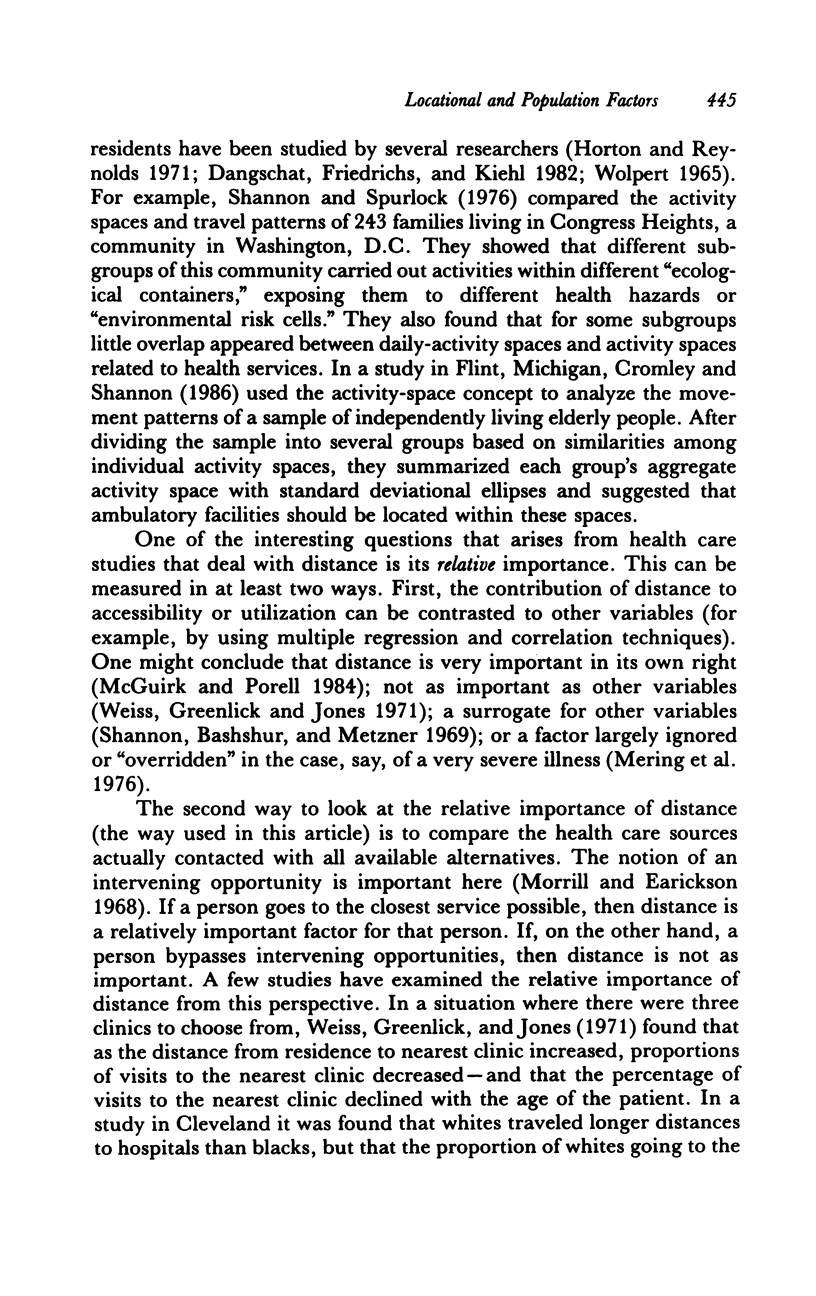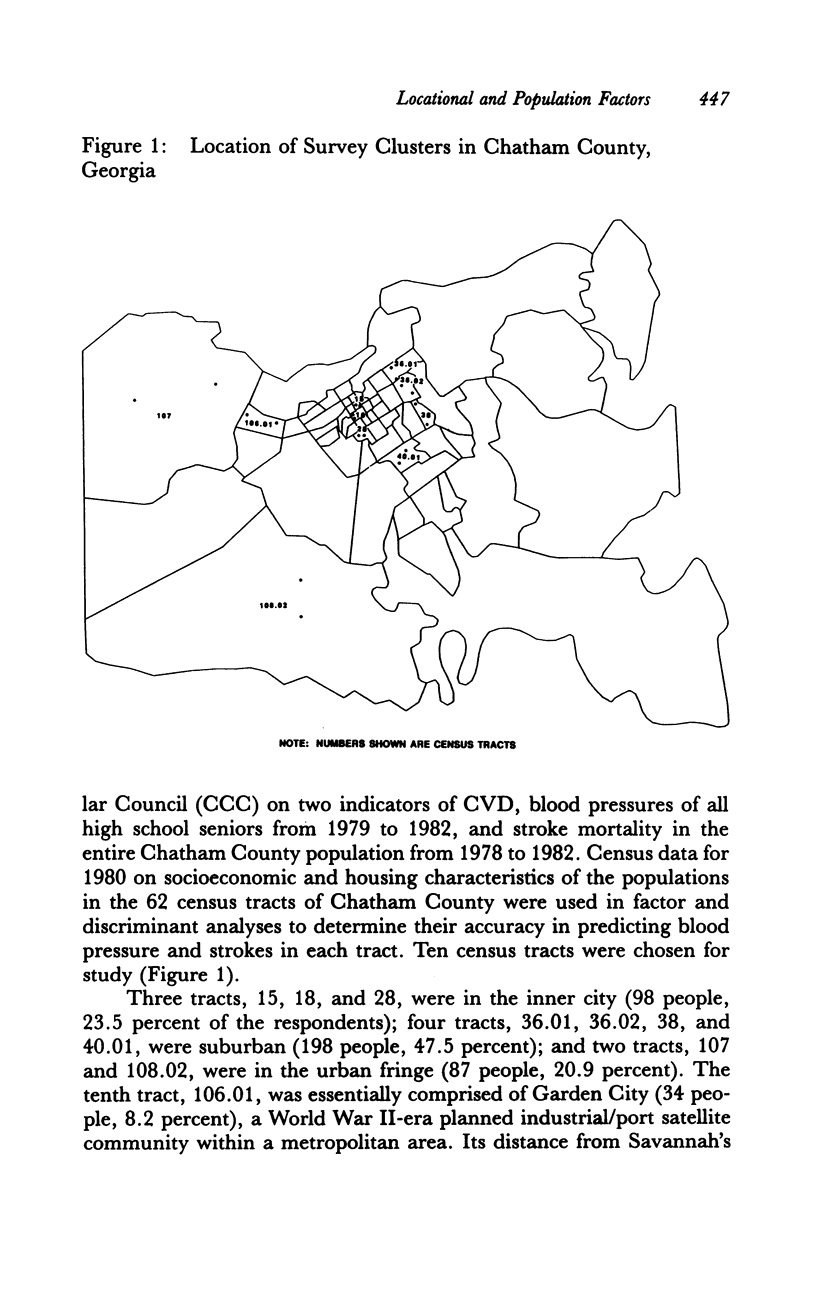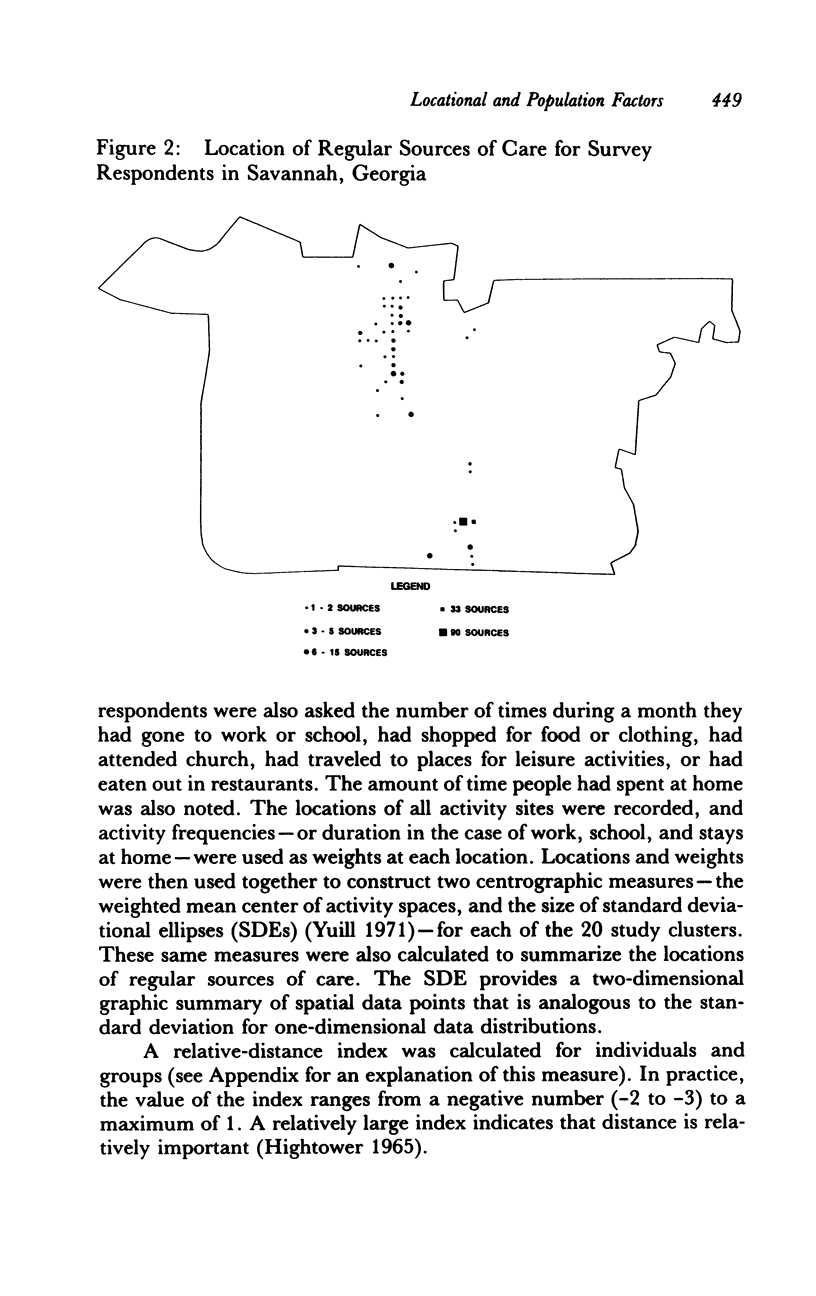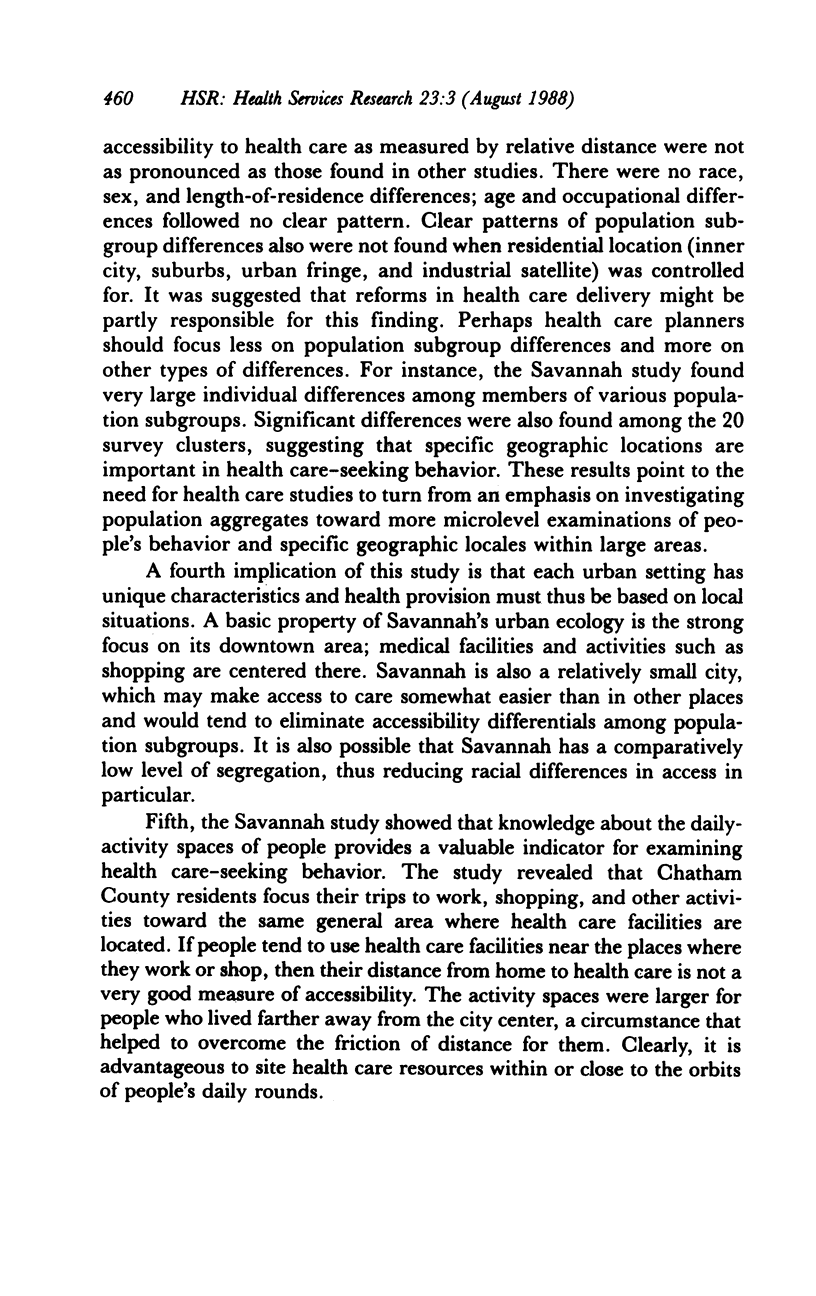Abstract
The use of regular sources of health care by a sample of residents of Chatham County, Georgia was examined through an analysis of the interactions among distance, sociodemographic, locational, and activity-space factors. Health care facilities were concentrated near downtown Savannah. Distance from home to regular source of care was a relatively more important factor for inner-city residents than for suburban or urban fringe residents. There were no clear differences by race, sex, age, occupation, or length of stay at present residence in the relative importance of distance. Strong associations were found between distance-to-care measures and measures of daily-activity spaces. Urban ecological structure appeared to play a more important role in health care-seeking behavior than did the personal characteristics of individuals in this small metropolitan area.
Full text
PDF



















Selected References
These references are in PubMed. This may not be the complete list of references from this article.
- Bashshur R. L., Shannon G. W., Metzner C. A. Some ecological differentials in the use of medical services. Health Serv Res. 1971 Spring;6(1):61–75. [PMC free article] [PubMed] [Google Scholar]
- Cromley E. K., Shannon G. W. Locating ambulatory medical care facilities for the elderly. Health Serv Res. 1986 Oct;21(4):499–514. [PMC free article] [PubMed] [Google Scholar]
- Fuller G. On the spatial diffusion of fertility decline: the distance-to-clinic variable in a Chilean community. Econ Geogr. 1974 Oct;50(4):324–332. [PubMed] [Google Scholar]
- Haynes R. M., Bentham C. G. The effects of accessibility on general practitioner consultations, out-patient attendances and in-patient admissions in Norfolk, England. Soc Sci Med. 1982;16(5):561–569. doi: 10.1016/0277-9536(82)90309-4. [DOI] [PubMed] [Google Scholar]
- Mayer J. D. The distance behavior of hospital patients: a disaggregated analysis. Soc Sci Med. 1983;17(12):819–827. doi: 10.1016/0277-9536(83)90032-1. [DOI] [PubMed] [Google Scholar]
- McGuirk M. A., Porell F. W. Spatial patterns of hospital utilization: the impact of distance and time. Inquiry. 1984 Spring;21(1):84–95. [PubMed] [Google Scholar]
- Morrill R. L., Earickson R. Variation in the character and use of Chicago area hospitals. Health Serv Res. 1968 Fall;3(3):224–238. [PMC free article] [PubMed] [Google Scholar]
- Shannon G. W., Bashshur R. L., Spurlock C. W. The search for medical care: an exploration of urban black behavior. Int J Health Serv. 1978;8(3):519–530. doi: 10.2190/0F28-23GM-42K0-PQDN. [DOI] [PubMed] [Google Scholar]
- Shannon G. W., Skinner J. L., Bashshur R. L. Time and distance: the journey for medical care. Int J Health Serv. 1973 Spring;3(2):237–244. doi: 10.2190/FK1K-H8L9-J008-GW65. [DOI] [PubMed] [Google Scholar]
- von Mering O., Shannon G., Deal W., Fischer P. A long day's journey to health care. Hum Organ. 1976 Winter;35(4):381–389. doi: 10.17730/humo.35.4.d6427644g1g41634. [DOI] [PubMed] [Google Scholar]


